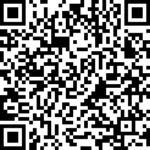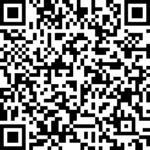“Just one more.” You tell yourself as you grab another glass of that familiar wine, right between checking emails. Are you even there for the first few sips? Maybe not. But do you still go for it? Totally yes. Why? You might be asking yourself now.
Before we start unpacking this, “why”, we’ll tell you that you’re not failing and out of control. It’s just your brain’s routine map.
Yes, that’s true. So much of our drinking isn’t a conscious choice. It’s an automated pattern, almost a reflex. And that’s where alcohol psychology gets really interesting. So buckle up, it’s time to tap into some unconscious behaviours!

Habits Need No Permission
Our brain possesses master-level skills to form habits, like brushing your teeth or checking your emails. It thrives on routine and structure. Nothing personal here; this pattern-obsessing nature actually saves energy and is driven by survival instincts.
Studies show that 40-45% of your daily behaviours are habits, not choices. Whatever you’re doing on repeat? The brain is constantly learning it and locking it in. And if there’s an emotional reward (connection, relaxation, relief) attached to it? Bingo. It’s been embedded in your unconsciousness. Drinking can become one of those habits, and not because your soul craves it, but because your brain has put it in the “shortcuts” folder.
So even if you’re actively saying, “no, let’s change,” to some habits. Your deeper unconscious mind might still be running that old playlist.
Awareness Doesn’t Mean Change
You know it. We all know it. Awareness is great. But… is it enough? Unfortunately, no.
Research backs this up by saying, even if awareness engages our Prefrontal Cortex, PFC (think of it like the CEO of the brain), it rarely overrides the deeply learned emotional associations. So, just being aware of the habit doesn’t change or result in action towards the change.
You cannot outthink alcohol craving, it’s like stopping that train with a mere sticky note sign while your brain’s already halfway to Merlot Town.

Awareness Doesn’t Mean Change
Are you then stuck with these habits forever? Fortunately, no.
Awareness and motivation are the first steps, but you need a brain update, which happens through tools that speak the same language as the unconscious mind. You unlearn habits like how you formed them and rewire your brain through experience, repetition, and emotional safety.
So what actually works? Time for the exciting part!
Studies have shown that hypnotherapy directly targets the unconscious and helps relax the analytical mind (your PFC). Imagine it as a mental rehearsal that provides the brain with a software patch. It creates a state of calm, where the inner mind is more open to gentle rewiring of the brain’s cues to behaviors. Need a gentle way to adapt this tool? Unconscious Moderation is your ally!
Research also highly correlates pattern disruption with habit change. Even tiny and minor shifts in your routine, such as placing the bottle far behind the cabinet or delaying the drink, can evoke disturbance in your old patterns. Over time, this weakens the bond between your cue and behavior.
Visualization and expressive writing, such as journaling, can also help learning new patterns and bridge the gap between emotions and logic. Through these tools, you pause and choose before initiating an action. You reflect on emotional triggers without judgment and replace them with healthy coping mechanisms.

The New You
Don’t take it as a control, but a deeper connection with your mind. Why? Because it’s already listening. Once you’ve learned that safety, clarity, and relief are available without alcohol, your mind will stop seeking that old shortcut.
Ask yourself…
What would it be like to pause and choose before the habit kicks in? What if you can reshape your drinking habits rather than controlling them?
Hence, as we mentioned earlier in the post, you’re not broken or out of control. You just need to reshape your brain’s routine map. We at UM? Always here to help you!



